Why is Bulgaria making a big fuss about the niqab?
- Published
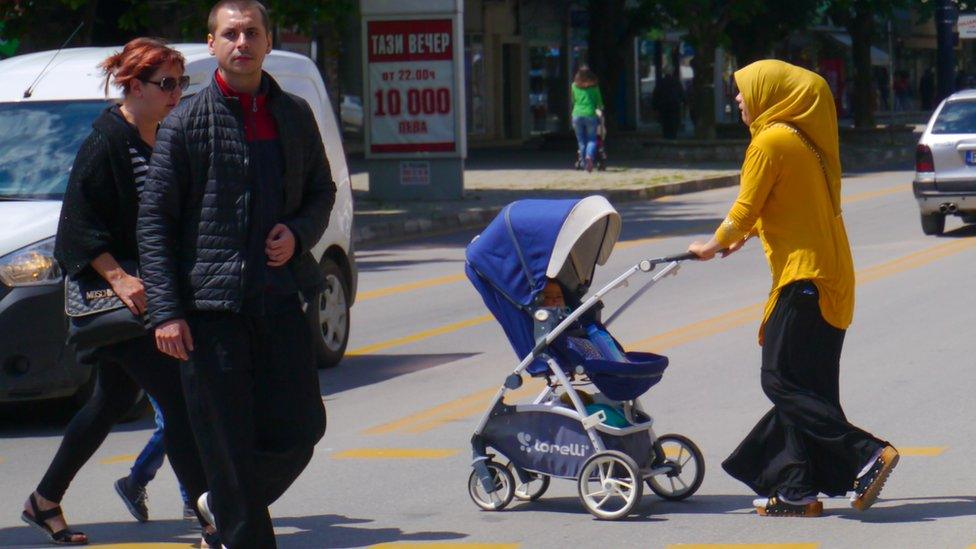
The face-veil ban was first introduced in Pazardjik, where 4% of the population is Muslim
Bulgaria is set to become the latest EU country to ban the niqab, or face veil, after the right-wing coalition party, Patriotic Front, submitted a bill to parliament as a "pre-emptive measure".
Belgium, France and Latvia have already done so but Bulgaria's example stems from the small, southern city of Pazardjik, which has just imposed its own "burka ban", as local media dubbed it. The burka, which covers the eyes, has never been seen in Bulgaria.
The face veil is not considered traditional dress for Bulgaria's Muslims, who make up 10% of the country's 7.1 million population.
The vast majority are indigenous communities of ethnic Turks, Roma and Pomaks (Bulgarian-speaking Muslims). In fact, women who have been spotted wearing it in the past two to three years are almost all members of a small Salafist, Roma community in Pazardjik.
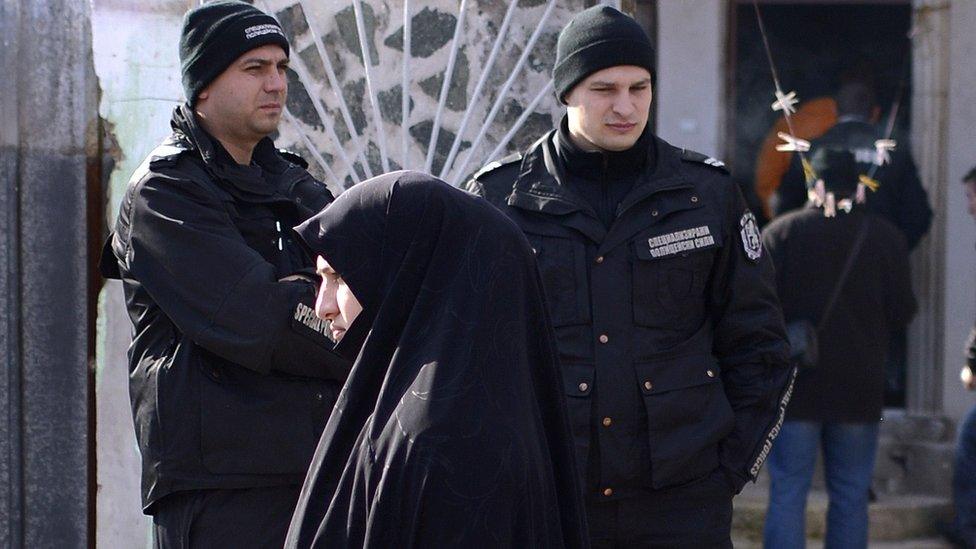
Most Bulgarian Muslims do not wear the niqab, even in Pazardjik
The community has been at the centre of controversy and media attention after one of its preachers, Ahmed Musa, was put on trial three times for spreading "religious hatred". Locals say Musa was born Christian but 20 years ago converted to Islam; he adopted more conservative views after travelling to the West.
Only 4% of Pazardjik's 70,000 population is Muslim and only a fraction of that number follow Ahmed Musa. Yet the presence of about two dozen women wearing the niqab in the city created unease in the local administration.



"The main things that motivated and catalysed this [ban] were the terrorist attacks that happened in European countries and the increasing flow of migrants who entered the country in the past few years," explained Rumen Kozhuharov, the head of the municipality.
The police had already issued a citation to one woman, he said, for wearing a face veil in the streets of the "Iztok" quarter, a mixed Christian and Muslim Roma neighbourhood where the Abu Bakir mosque of the conservative community was built 10 years ago.
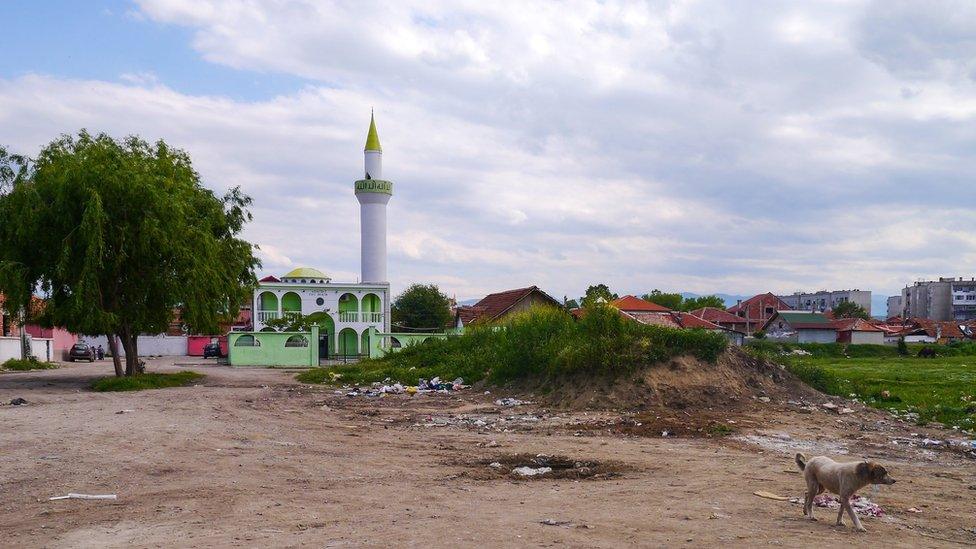
The Abu Bakir mosque is surrounded by fields of rubbish
A week after the ban came into place no women were to be seen wearing the niqab in the streets of the neighbourhood. Local people were reluctant to comment, saying they distrusted journalists because of the persistent visits of TV crews and their "biased" portrayal of their community.
One man at the Abu Bakir mosque, who introduced himself only as Agati, told the BBC that the ban was "an affront to the religion", but he refused to elaborate.
Mickey Mouse and the Minions
Ramiz Sali, former head of the Muslim board in Pazardjik, who now works at the city's 350-year-old Ottoman mosque, said that he didn't care whether a woman covered her face or not, but that Islam only required that she wore a headscarf.
The real problems that the Roma neighbourhood faced were high illiteracy and unemployment, he added.
"What terrorism are they talking about when half of the Roma neighbourhood are scavenging rubbish containers?" he said.
After Pazardjik, five major Bulgarian cities, including the capital Sofia, began considering similar bans. By contrast, Plovdiv, Bulgaria's second biggest city, voted against it; its mayor mocked the proposal saying that it would affect only Mickey Mouse and the Minions.
The Grand Mufti's Office in Bulgaria has rejected the face veil ban bill, saying it infringes on the freedom of religion guaranteed by the constitution.
"The far-right populist pseudo-patriotic factions are seeking to gain dirty [political] dividends on the back of Muslims, which is dishonourable given the scale of Islamophobia across the world," said Jalal Faik, the secretary general of the Grand Mufti's Office.
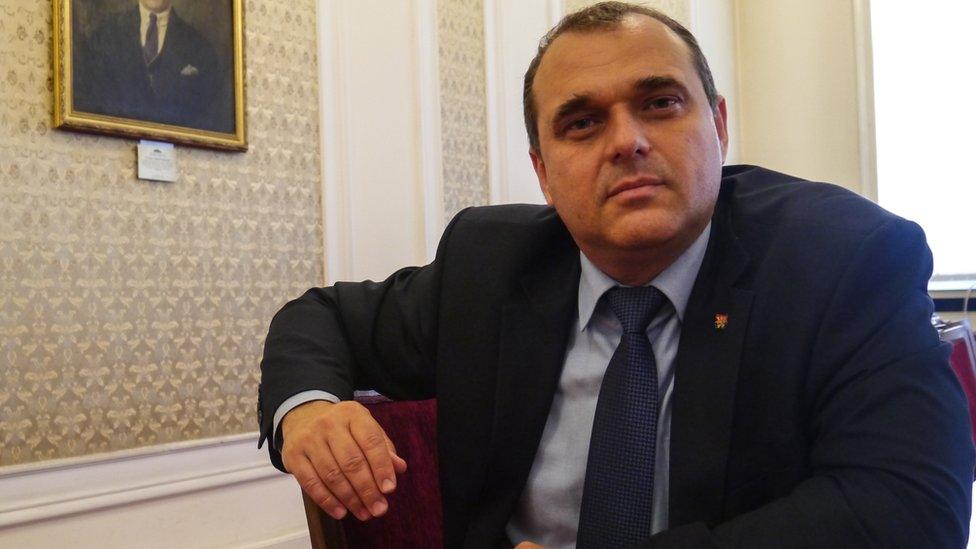
Patriotic Front MP Iskren Veselinov argues that the face veil leads to radicalisation
The face veil was not a major issue in Bulgaria until members of the VMRO Party (part of the Patriotic Front) started calling for a ban in late March. It then gained wide support among both the ruling majority and the opposition left.
"[Wearing the face veil] is one of the many steps which lead to radicalisation of the Islamic community in Bulgaria. We shouldn't allow such radicalisation," said VMRO MP Iskren Veselinov.
He says the recent terror attacks in France and Belgium prove that such a ban is necessary.
"France and Belgium started talking about [a ban] 30 years ago, but implemented it only a few years ago, after two generations of Islamists came of age," he added.
According to Dimitar Bechev, visiting fellow at Harvard's Center for European Politics, the face veil ban is part of a political game.
He explained that other members of the ruling coalition, including PM Boyko Borisov's GERB party, were supporting the ban to appease their coalition partner, the PF, while the left backed it because of its staunchly nationalistic attitudes.
"Here is the threat of a vicious circle emerging: nationalists scapegoating Muslims and pushing certain individuals to radicalisation which in turn would fuel more hate speech," he warned.
The face veil ban bill has already been approved by two parliamentary committees, and its supporters expect it to pass before parliament's summer break.
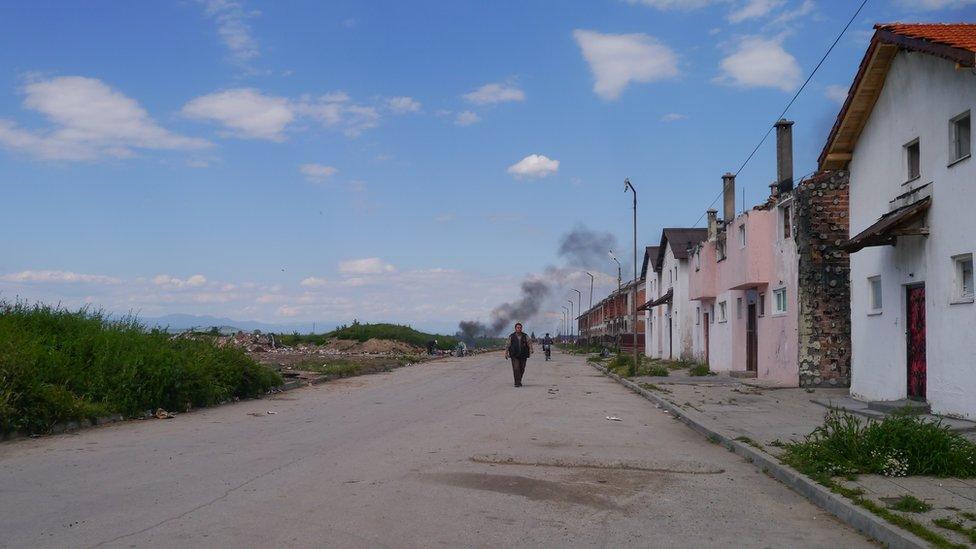
Residents have criticised media for what they say is an unfair representation of Pazardjik
- Published20 January
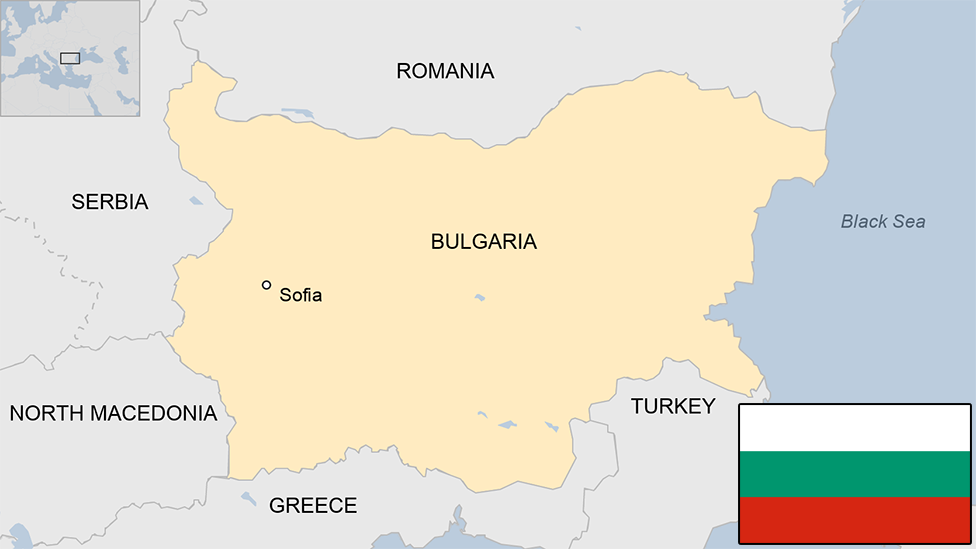
- Published7 August 2018
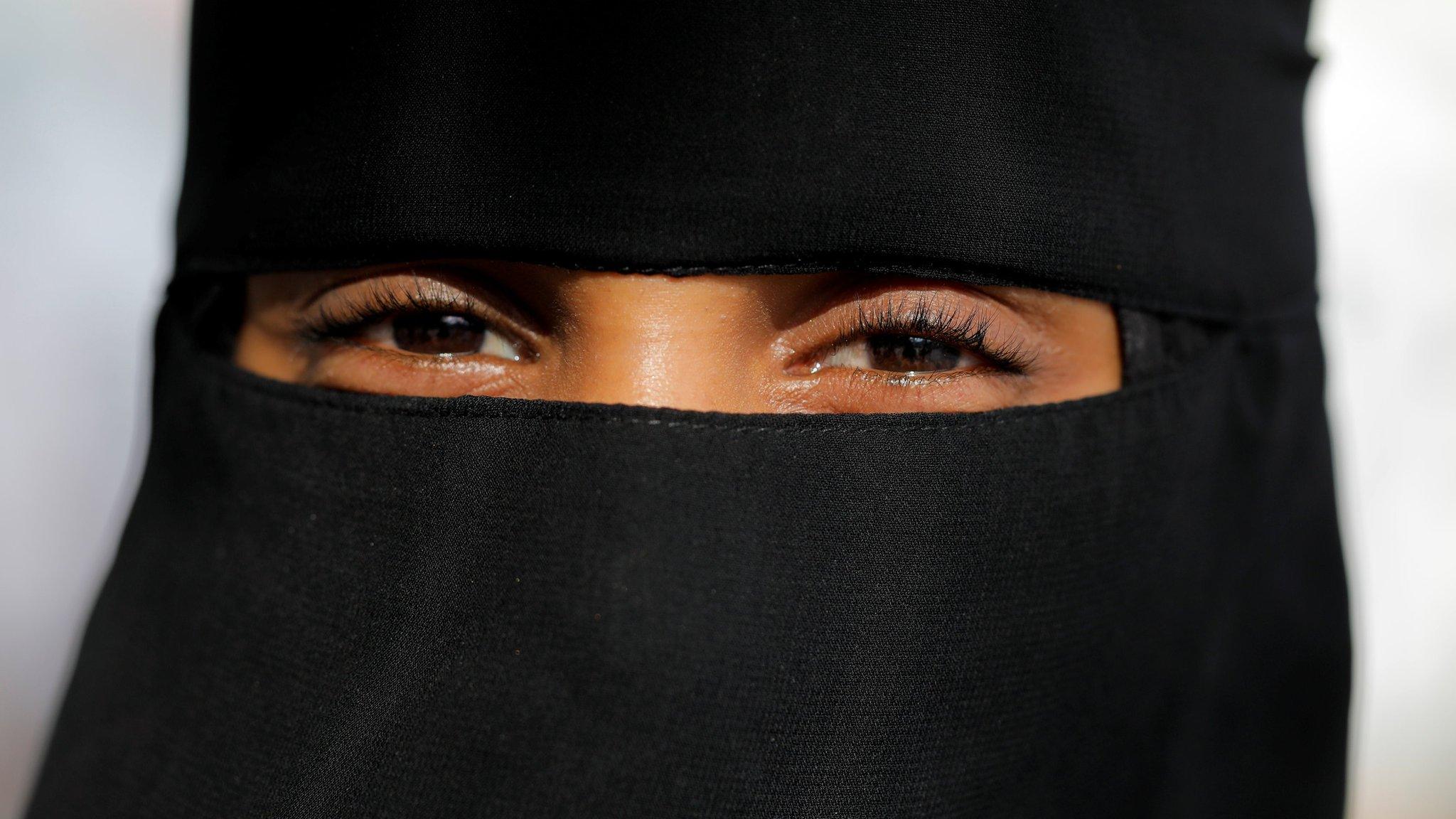
- Published11 April 2011
- Published20 October 2014